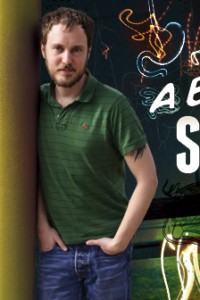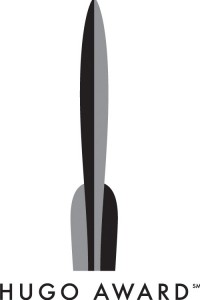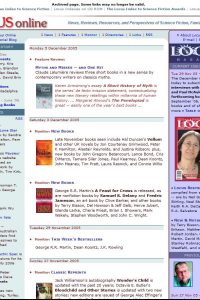Beth Cato: Ripple Effects

Beth Cato was born Beth Davis on January 13, 1980 in Hanford CA. She graduated from high school early and began college at 16. At age 20 she married Navy sailor Jason Cato, and they traveled around the country, spending time in South Carolina and Washington state. After her husband left the Navy, they settled in Arizona.
Cato began publishing short fiction, poetry, and non-fiction starting around 2009. Her first novel, steampunk adventure The Clockwork Dagger, appeared in 2014, followed by sequel The Clockwork Crown (2015). Story The Deepest Poison and novella Wings of Sorrow and Bone, set in the same world, appeared in 2015 as well. Breath of Earth, first in a new alternate-history series, is forthcoming in August 2016.
Cato lives in Buckeye AZ with her husband and their son Nicholas.
Excerpts from the interview:
‘‘There was never a point in my life when I didn’t know science fiction. My brother was born in 1977, and was Star Wars obsessed from birth. My mom was pregnant with him when she saw the movie. The John Williams music came on and he kick-kick-kicked. That’s the story she always tells. When I was a baby my first words were ‘Mom’ and then ‘Star Wars’. My dad loves sci-fi, and corny sci-fi movies. I felt a heart pull to fantasy from early on. I was also very horse obsessed as a kid, and read every horse book in the library. I didn’t like She-Ra, but I wanted her horse. Horses are a good gateway to fantasy, because you get into unicorns and pegasi and go from there.
‘‘I was about four years old when I started making my own books and illustrating them. I always wanted to grow up and be a writer, to see my name on the cover. As a teenager, I really fell into fantasy video games, especially Final Fantasy II. From there, I went head over heels in love with fantasy novels, especially when I found DragonLance. The Margaret Weis & Tracy Hickman books were huge for me.
‘‘Throughout my teenage years, I wanted to grow up and write huge epic fantasy novels. As I got older I had a lot of pressure on me not to write fantasy. I have well-meaning members of my family who still aren’t comfortable with me writing about magic and things like that. I was told as a teenager that if I kept writing this stuff, it could commit me to Hell. My relatives were genuinely concerned. I had that pressure on me, and also had a college creative writing teacher who saw me reading a fantasy novel and sneered, ‘That’s not a real book.’ I didn’t have any confidence, so stopped reading genre fiction. I still read some historical fiction, mysteries, and literary fiction, but I read like ten books a year instead of 50 or 70. When I couldn’t say, ‘Hey, I love fantasy novels,’ I lost part of my identity. It took me a lot of years to finally realize, I wasn’t being true to myself if I ignored my love of fantasy. That’s part of me.”
…
‘‘I wanted to write something that would sell. I told her I had this idea about doing Murder on the Orient Express on an airship, with a healer as the heroine. My previous book was an urban fantasy superhero book with a healer. I love healers. I wanted to see if I could figure out a steampunk take on the premise, so I wrote The Clockwork Dagger from that idea.
‘‘My book isn’t about the petticoats and the nice clothes. It’s not the elegant side of steampunk at all. It’s pretty gritty, set in a secondary world based on WWI-era Europe. It’s got disease and starvation. It’s a kingdom, Caskentia, that’s been experiencing intermittent war for 50 years. That has had devastating consequences, with a population that has lots of amputees and lots of lingering illnesses. The male population’s been decimated. There are also ripple effects, like archaic technology and a lack of education. It’s a population known for its illiteracy, and kind of mocked for that. I have a healer, Octavia, who is 22 years old. She was orphaned at age 12, and was adopted into a medicians’ academy, run by Miss Percival, whose healers serve on the frontline of the war.”
…
‘‘When creating a magic system for Clockwork Dagger, I wanted it to have realistic limits. I wanted Octavia to be powerful, but not a demigod. To do that, I thought about roleplaying games again. You have your items, you use up your items, and they’re gone. If you need to use a medicinal herb in a battle and you don’t have one, you’re going to die. Even though Octavia has profound natural healing powers, she has to rely on particular and rare herbs. With Caskentia’s situation and the academy’s situation, she’s basically limited to what she has in her satchel when she goes to her new source of employment in the first book. She is very efficient about how she uses herbs, but she still only has one jar of each. When that’s gone, she has no money, really. She can’t harvest most herbs where she’s going. She knows, ‘I need these supplies, or I can’t do my job when I get to my destination.’ She is in a country so devastated by war, and everyone is needy. There are refugees everywhere. She runs genuine risks when she’s out in public. If people realize who she is and what she can do, they will come clamoring to her, saying ‘Heal me, heal me.’ And what can she do? It would be a mob scene.
‘‘The sequel Clockwork Crown is very much an action-adventure. I still have spies and espionage, but it’s more like a race. Pacing-wise it reads very fast. I’ve had people say, ‘I had to read it in two days – I couldn’t put it down.’ I have a lot of people ask me why it’s a duology, not a trilogy. That goes back to a conversation I had before the series even sold. I had Clockwork Dagger done and with my agent and we went back and forth for nine, ten months to revise it completely for submission to publishing houses. In the middle of that time, my agent came out for a conference in Scottsdale. We sat down for dinner one night, and she gave me her edits for Clockwork Dagger so we could do another round of revisions. We were talking about my ideas for other books in the series if it actually sold. She said, ‘Those are good ideas. Is that enough for a trilogy?’ I said, ‘Huh. I’ll have to think about that.’ Fastforward ten months, and HarperVoyager wanted a two-book deal. I remembered what Rebecca told me months before, and thought, ‘I wonder if I could do this as a duology?’ I knew I wanted the books to take place over a couple of weeks. Time-wise it was very tight. I needed the novels to fit together like puzzle pieces, so I wrote an outline for the next book. I kept that in mind as I did the revisions on Clockwork Dagger, which were very extensive. I cut ten percent of the book. It was a scary revision letter. Diana Gill edited Clockwork Dagger, and now I have Kelly O’Connor, who was her assistant then.
…
“I look at the writing business as a big staircase. Everyone’s at a different place on the staircase. Every place you are is equally valid. I know that frustrated me to no end when I was starting out, because I wanted to be at the top of the staircase. But I love helping out other writers. Doing the Strolling with the Stars at a convention recently, I had a fantastic talk with these other ladies I was walking with. We were commiserating about rejections, because one of them had gotten a rejection that morning. No matter how much you have published, there are some stories you love, and some markets you want to get into so desperately, that the rejection is going to sting.”
Read the complete interview in the December 2015 issue of Locus Magazine. Interview design by Francesca Myman.





